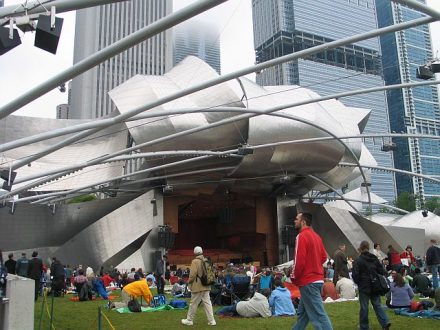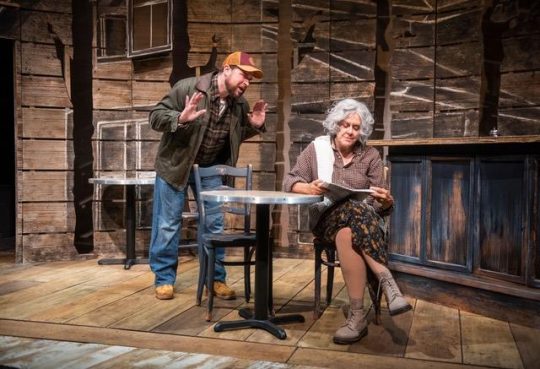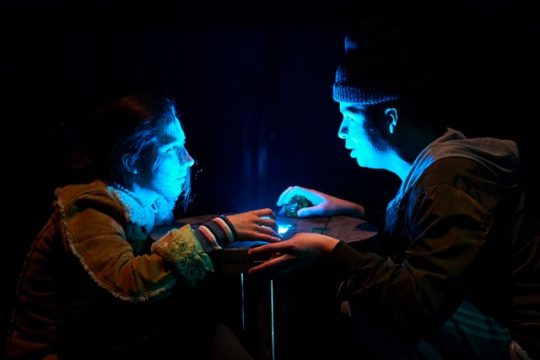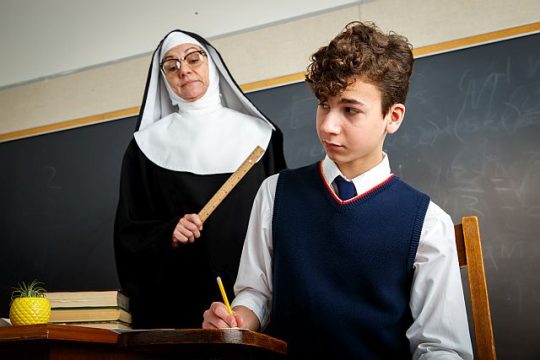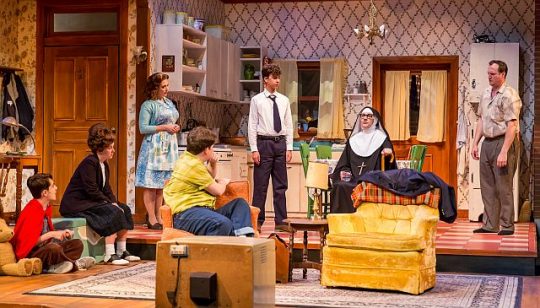
Sometimes theater companies perform in more than one space and some venues host more than one resident theater company. Looking at the venues west of I 94 you find both so some of these companies have been listed elsewhere. Also, be sure to check out what’s playing at the fine theaters south of the loop such as Court Theatre and The Chicago Children’s Theatre. Next stop will be suburban theaters, then season themes.
West
Chopin Theatre
A multi theater venue at 1543 W. Division St. the building has “Invitation to a Beheading” by Rough House Theatre and Sweven Theatre, Aug. 26 to Sept. 15, 2019. ’ “Destinos,” an international theatre festival, features Feos Sept. 19 to Oct. 27. Rough House Theatre will be again be doing the “Walls of Harrow House” September to November. The House Theatre will present The Nutcracker” Nov. 7 to Dec. 29, 2019.
For tickets and other information call (773) 278-1500 and visit Chopin Theatre.
The Den Theatre
The Den, a multi-theater venue at 4802 N. Milwaukee Ave, has its own house shows and hosts other companies. Here are a few of the plays at The Den in the 2019-20 season.
Haven is currently doing the Chicago premiere of “Kiss” through Aug. 18, 2019. presents “Incorruptible” Aug. 1-Aug 11.
First Floort is doing the Chicago premiere of “Sugar in Our Wounds,” Oct. 19 to Nov. 23, 2019, then the Chicago premiere of “Plano,” Feb. 15 to Mar. 27, 2020. Spring is the world premiere of “The Juniors,” April 18 to May 30, 2020.
New Colony will do “ Peg” Nov.13, to Dec. 14, 2019 . Then “Under the Tree” runs April 01 to May 03, followed by “Other Rockpools” July 15 to Aug.15, 2020.
For tickets and other information call (773) 697-3830 and visit The Den
The Gift Theatre,
The theatre, at 4802 N. Milwaukee Ave., is currently doing “Wolf Play” through Aug.. 18,. “Kentucky” is coming Oct. 17 to Nov. 16, 2019. For tickets and other information call (773) 283-7071 and visit The Gift Theatre.
Trap Door Theatre
The theatre, at 1655 W.Cortland St., is doing “Love and Information” Sept. 12 to Oct. 19, 2019. The December 2019 and March 2020 shows TBA. “The Water Hen” comes in May (dates TBA.) For tickets and other information call (773) 384-0494 and visit Trap Door.
South
Court Theatre
The theatre is at the west end of the University of Chicago’s Hyde Park campus at 5535 S. Ellis Ave.
The season starts with “King Hedlley II” Sept 12 to Oct. 13. and hen “Oedipus Rex” Novl 7 to Dec. 8 2019. It continues in 2020 with “The Mousetrap” Jan. 16 to Feb.16, “The Lady From the Sea” Mar. 12 to Apr.12 and “The Gospel at Colonus” May 7 to June 7.
For tickets and other information call (773) 753-4472 and visit Court Theatre.
Free Street Theater
Free Street Theater performs in Pulaski Park at 1419 W.Blackhawk but is doing “Still Here: Manifestos for Joy and Survival” at South Shore Cultural Center July 25, Humboldt Park July 27 and Cornell Square Aug. 1, 2019. It also does Storyfront at 4346 S. Ashland Ave.
For tickets and other information call (773) 772-7248 and visit Free Street Theater/shows.
Jodie Jacobs


